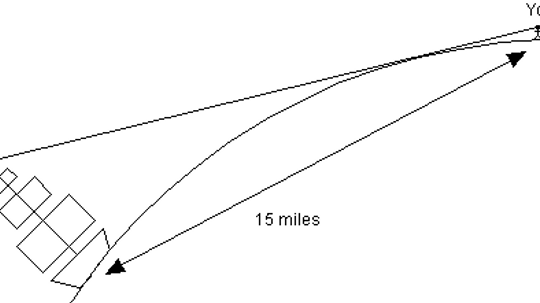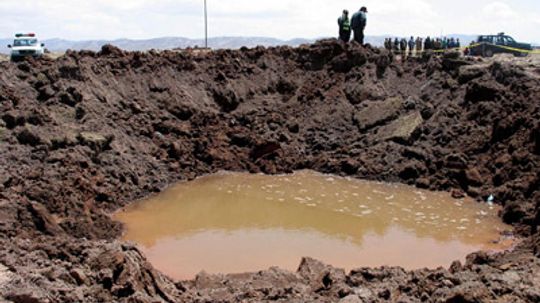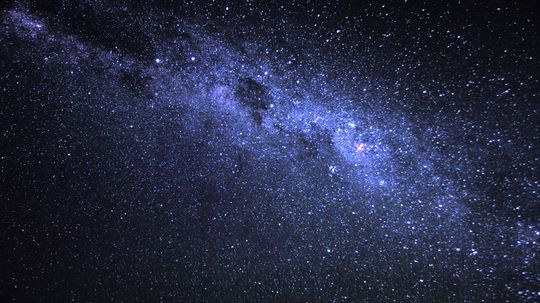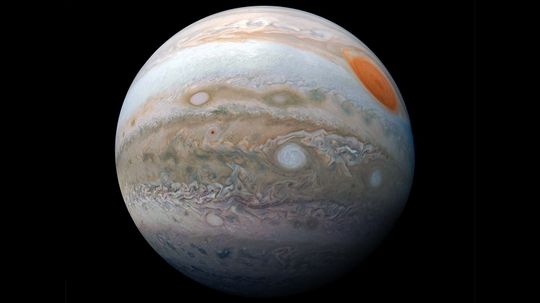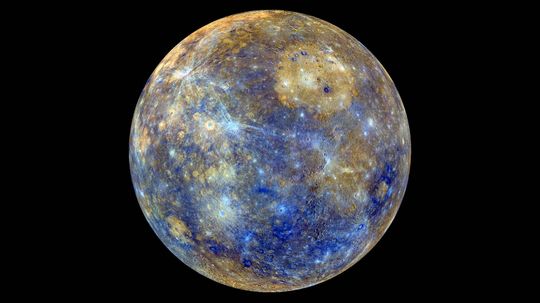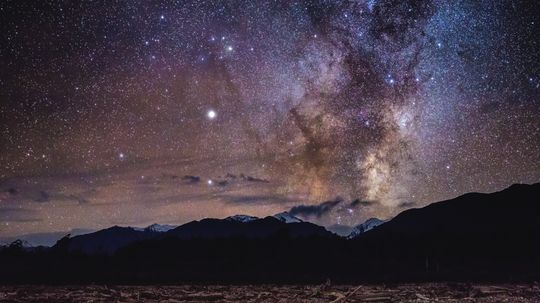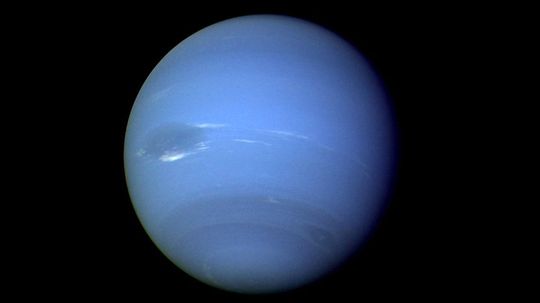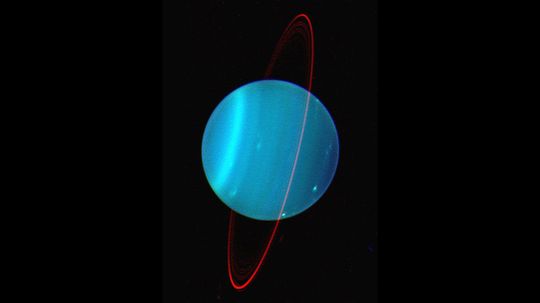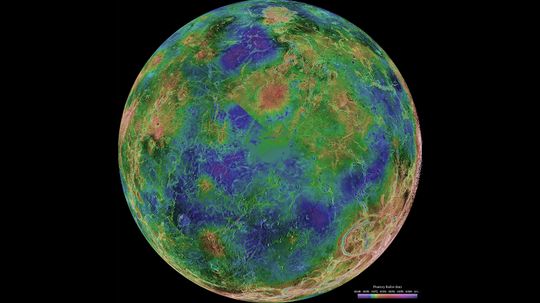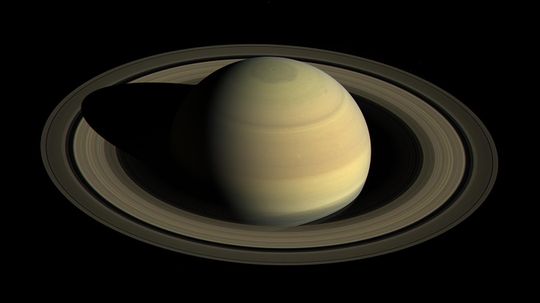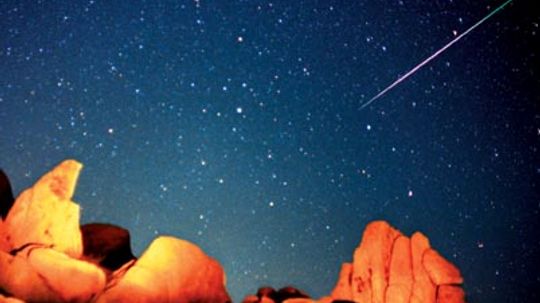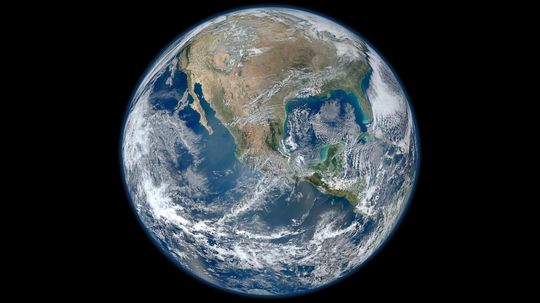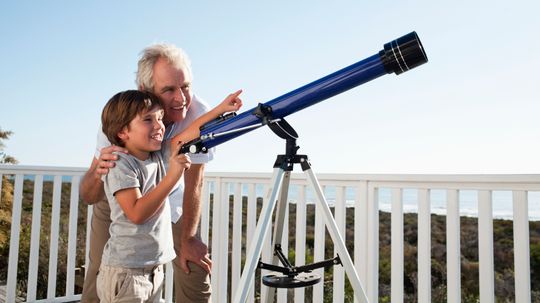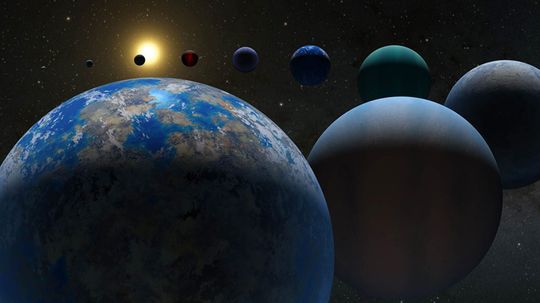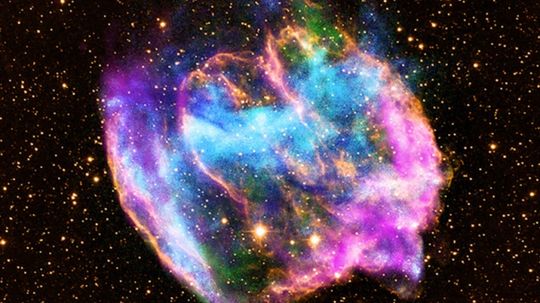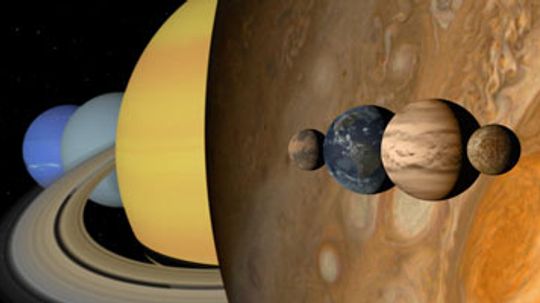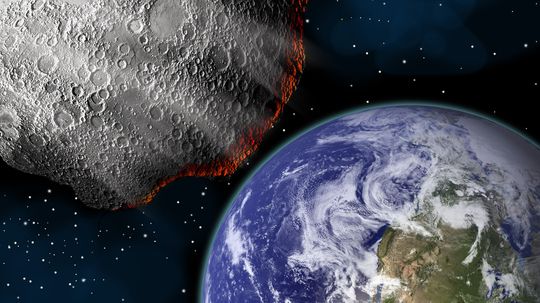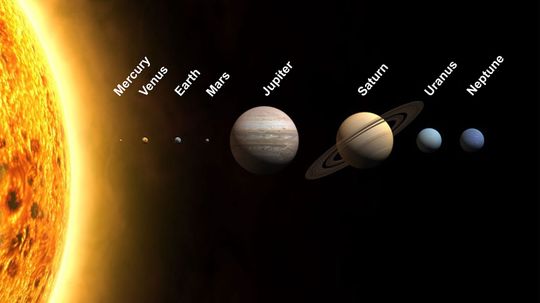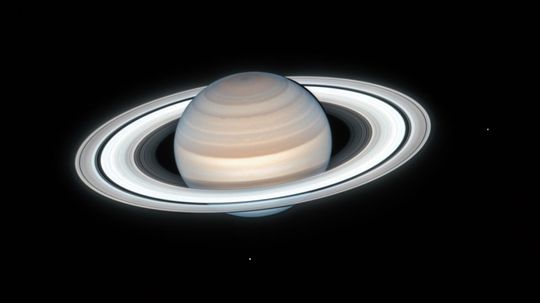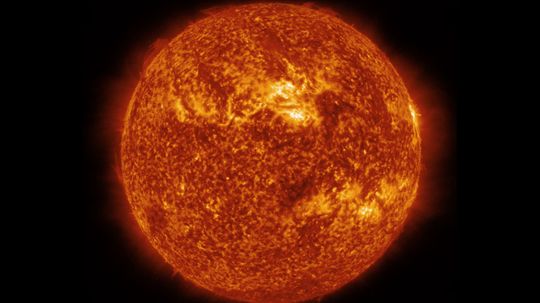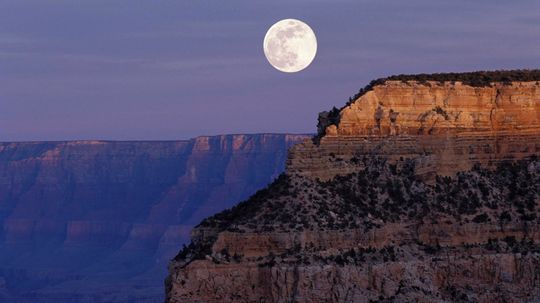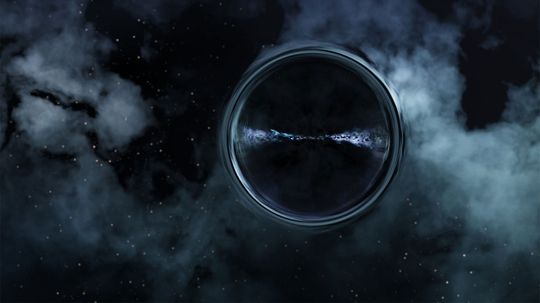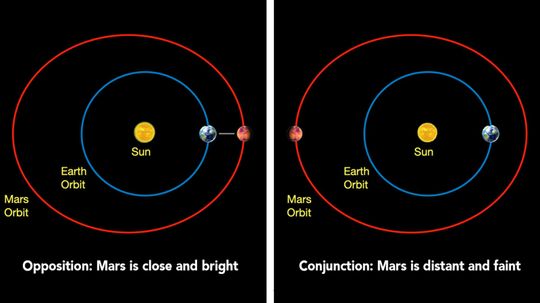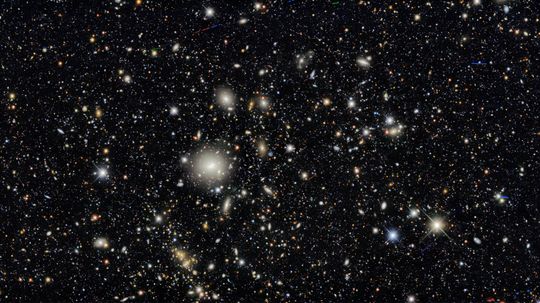Astronomy
Astronomy is a broad discipline covering all facets of astrophysics. In this section you can learn about the origins of the universe, black holes and other astronomical phenomena.
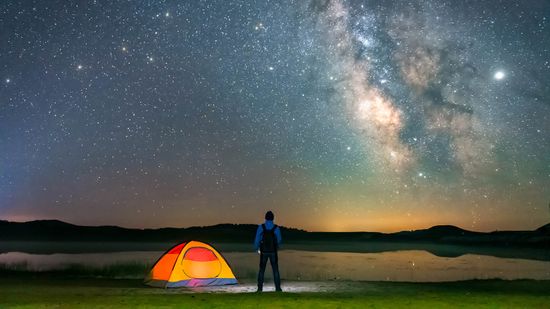
88 Constellation Names (and 24 You Can Only See From the Northern Hemisphere)
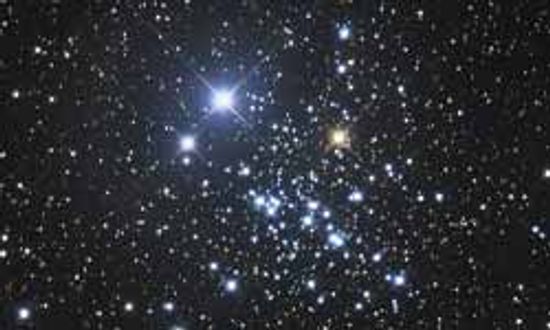
Constellation Pictures
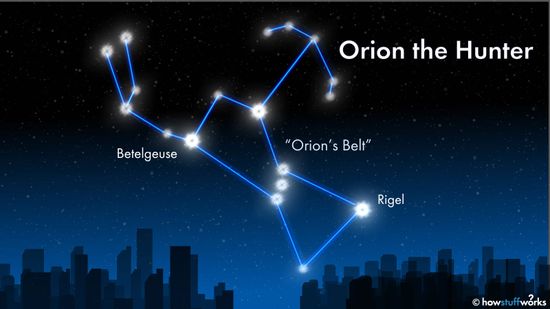
How to Find Orion's Belt in the Night Sky
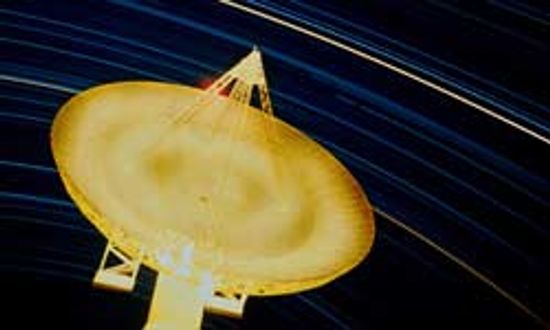
Radio Telescope Image Gallery
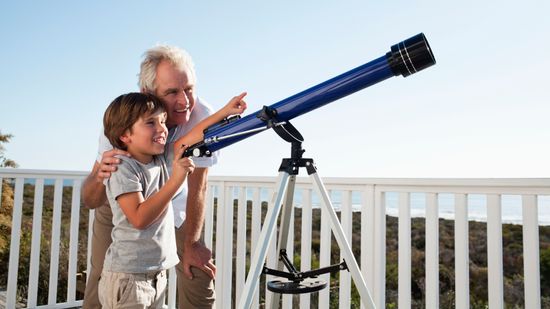
How do I build a telescope at home?
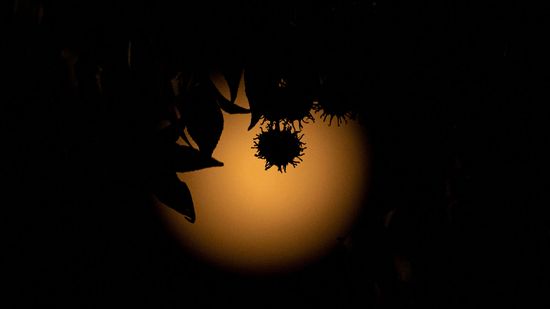
Shooting the Stars as an Astrophotographer
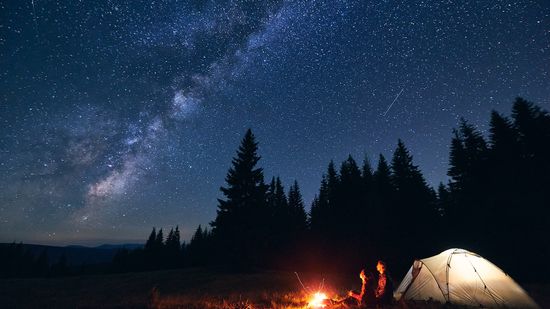
10 Types of Stars Blazing and Collapsing in Our Universe
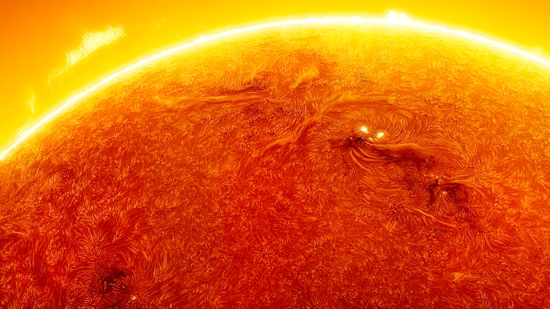
Solar Storm + Earth's Magnetic Field = Auroras Galore

What's the Brightest Star in the Sky? Depends on the Season
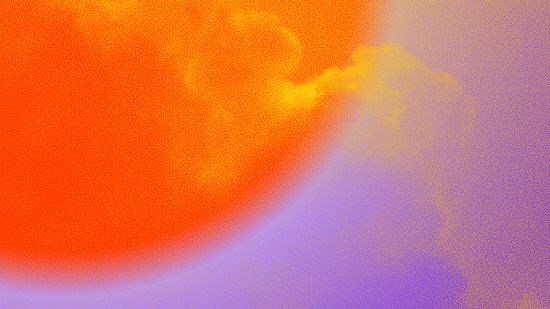
Why a Geomagnetic Storm Makes for Pretty Skies and Tech Scares
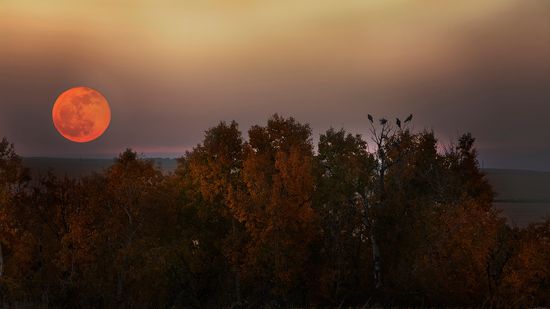
What Is a Harvest Moon?
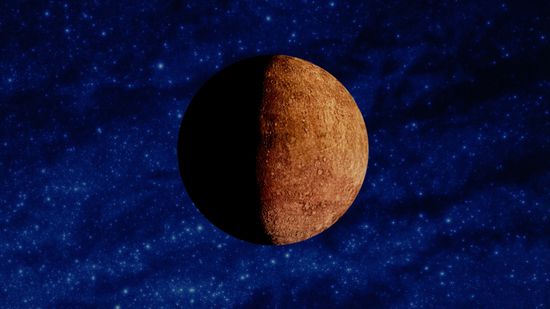
Mercury Retrograde Explained: Dates, Effects, and How to Cope
Learn More / Page 3
Can the curvature of the Earth only be seen from outer space? If you didn't know that the Earth is a sphere, there are three common observations you could use to convince yourself that it is.
A ball of fire blazed through southern Peru and left a huge crater -- and then villagers started getting sick. Early reports said the groundwater boiled and the air filled with sulfur. What happened?
A look at the night sky at any time of year will reveal a faint band of light stretching across the sky -- our solar system's home, the Milky Way. How much do we really know about it?
Advertisement
Jupiter is the largest planet in the solar system. Big as this gas giant is though, next to the sun, it's still small.
By Mark Mancini
Mercury is the closest planet to the sun, and it's the smallest in the solar system. So why does it have longer days than we have on Earth?
By Mark Mancini
While we generally picture the sun and planets when thinking about our solar system, it also consists of comets, asteroids and hundreds of moons.
Neptune is the eighth planet from the sun and one of the coldest. It also has supersonic winds that are the fastest in the solar system.
By Mark Mancini
Advertisement
Uranus is the seventh planet from the sun and sits on an axial plane tilted at a jaw-dropping 97.7-degree angle. And yes, Uranus does actually stink.
By Mark Mancini
The atmospheric pressure is crushingly extreme on Venus, and lead would melt into a puddle on its surface. But as hellish as this place sounds, it actually has a lot in common with Earth.
By Mark Mancini
Saturn is the sixth planet from the sun and the second-largest planet in the solar system. This gas giant has more rings and moons than any other planet.
By Mark Mancini
Some of the most interesting objects in our solar system are also the smallest or largest. In addition to the sun, planets, and moons, our solar system has a variety of small objects such as asteroids, comets, stars, meteors, and moons. These have affected what has happened on Earth in many ways.
Advertisement
If I was on the moon and the earth was black (no lights were on) and a flashlight was turned on facing the moon, would I see the light? If I couldn't, would there be any way to detect any residual matter that came from the light on Earth or does light die after a certain distance?
Even though it's tiny compared to the rest of the universe, Earth is a complex planet that, so far, is the only one we know of that sustains life.
There are all kinds of telescopes, but you can make a simple one on your own. You'll need a few basic supplies and this step-by-step article. Get ready to star-gaze!
Exoplanets, planets beyond our solar system, have been found in their thousands in the last two decades. Before that, we barely knew about the variety in outer space.
Advertisement
A dying star can explode with the force of a few octillion nuclear bombs and create any element in the universe. But why do stars go supernova?
It's tough to wrap your mind around a time when the Earth wasn't here. So how do Earth and the rest of the planets out there get their start in the universe?
By Robert Lamb
We can't defy the odds of an asteroid taking a turn for Earth forever, so the world's astronomers watch the sky. What happens once they spot something?
By Robert Lamb
You know Saturn and Venus and Mars. Can you put the eight planets of the solar system in the correct order? There are several ways to do this.
Advertisement
In recent years, Saturn has overtaken Jupiter as the planet with the most moons in our solar system. How many does it have and could it have even more?
Arcturus is 113 times brighter than our sun, even though it's only a little bigger. What else should we know about this red giant?
Surely you've watched tons of sunsets in your lifetime. But have you ever seen the sunset and the moonrise simultaneously? Is that even possible?
Scientists have observed flashes of X-rays coming from behind a supermassive black hole, consistent with Albert Einstein's prediction that extremely large objects can bend light.
Advertisement
The Mars solar conjunction occurs every two years and forces NASA to stop communicating with assets on the Red Planet. So what's the deal?
Early dark energy, a form of dark energy that may have existed a few hundred thousand years after the big bang, could help clarify the universe's rate of expansion. But its existence hasn't been proven.
